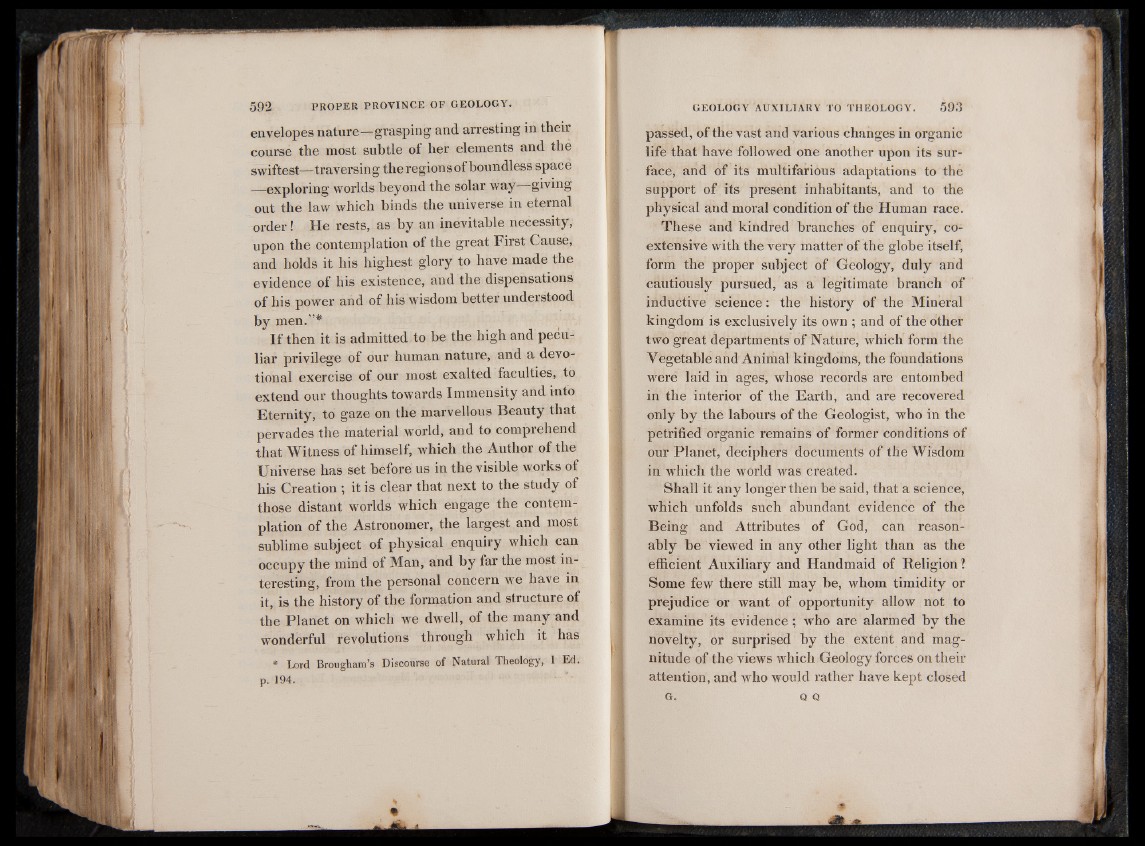
envelopes nature—grasping and arresting in their
course the most subtle o f her elements and the
swiftest—traversing the regions of boundless space
—exploring worlds beyond the solar way giving
out the law which binds the universe in eternal
order! H e rests, as by an inevitable necessity,
upon the contemplation o f the great First Cause,
and holds it his highest glory to have made the
evidence o f his existence, and the dispensations
o f his power and o f his wisdom better understood
by men.”*
I f then it is admitted to be the high and peculiar
privilege o f our human nature, and a devotional
exercise of our most exalted faculties, to
extend our thoughts towards Immensity and mto
Eternity, to gaze on the marvellous Beauty that
pervades the material world, and to comprehend
that Witness o f himself, which the Author o f the
Universe has set before us in the visible works o f
his Creation ; it is clear that next to the study of
those distant worlds which engage the contemplation
o f the Astronomer, the largest and most
sublime subject o f physical enquiry which can
occupy the mind of Man, and b y far the most interesting,
from the personal concern we have in
it, is the history of the formation and structure of
the Planet on which we dwell, of the many and
wonderful revolutions through which it has
* Lord Brougham’s Discourse of Natural Theology, 1 Ed.
p. 194.
passed, o f the vast and various changes in organic
life that have followed one another upon its surface,
and o f its multifarious adaptations to the
support o f its present inhabitants, and to the
physical and moral condition o f the Human race.
These and kindred branches o f enquiry, coextensive
with the very matter o f the globe itself,
form the proper subject o f Geology, duly and
cautiously pursued, as a legitimate branch o f
inductive s c ie n c e : the history o f the Mineral
kingdom is exclusively its own ; and of the other
two great departments of Nature, which form the
Vegetable and Animal kingdoms, the foundations
were laid in ages, whose records are entombed
in the interior o f the Earth, and are recovered
only b y thé labours o f the Geologist, who in the
petrified organic remains o f former conditions o f
our Planet, deciphers documents o f the Wisdom
in which the world was created.
Shall it any longer then be said, that a science,
which unfolds such abundant evidence of the
Bein g and Attributes o f God, can reasonably
be viewed in any other light than as the
efficient Auxiliary and Handmaid of Religion?
Some few there still may be, whom timidity or
prejudice or want o f opportunity allow not to
examine its evidence ; who are alarmed b y the
novelty, or surprised by the extent and magnitude
o f the views which Geology forces on their
attention, and who would rather have kept closed
G. Q Q